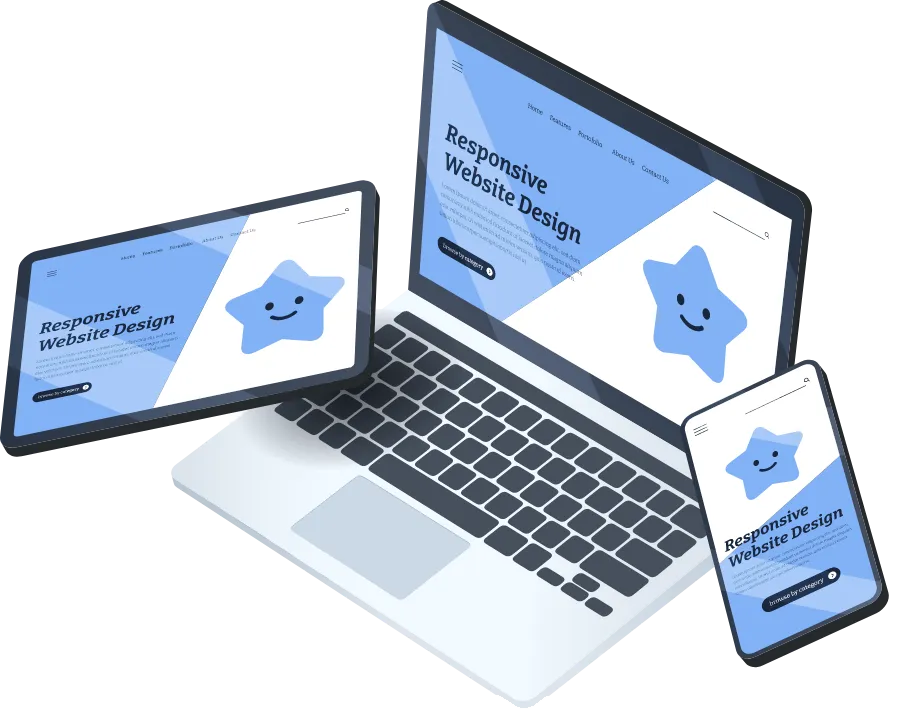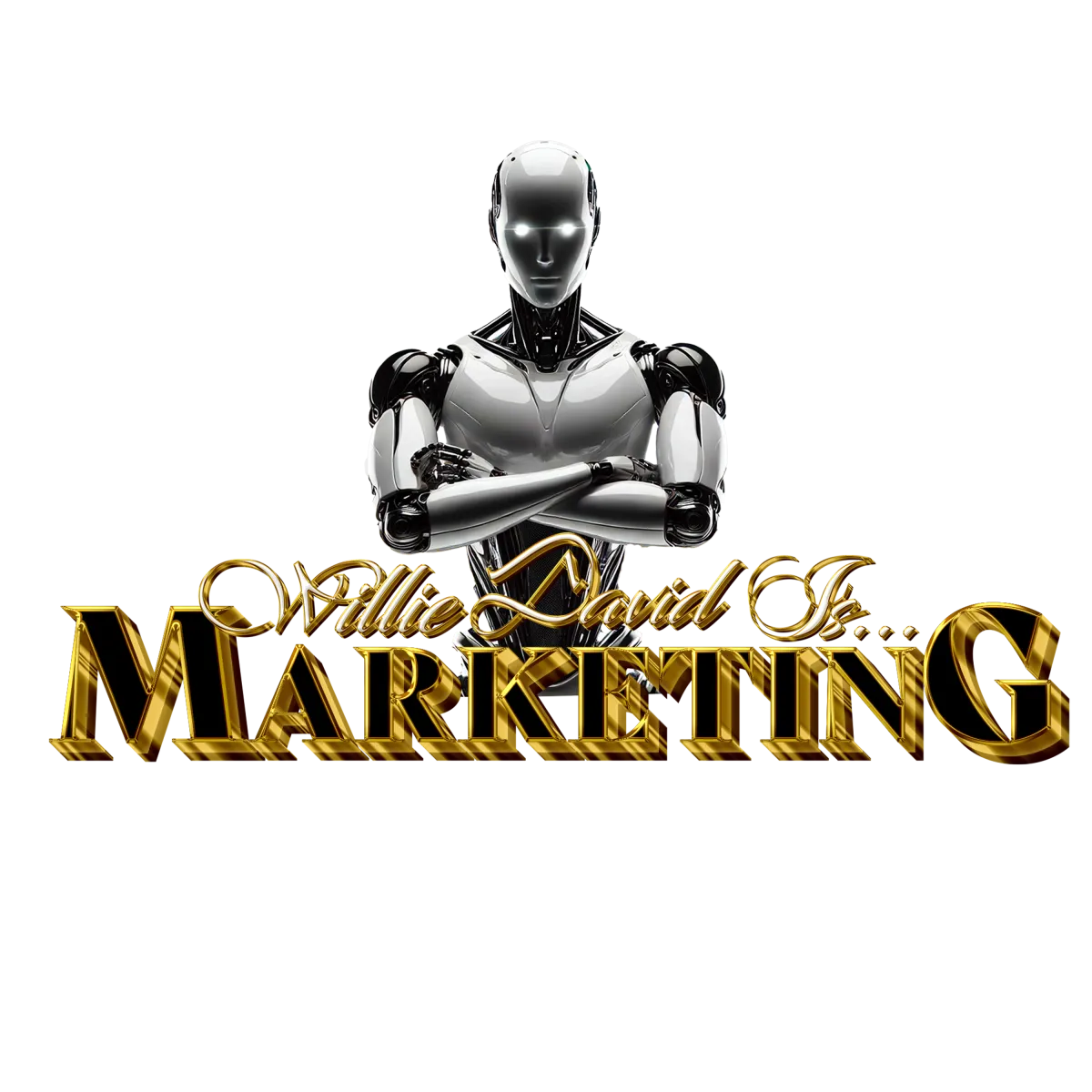Design Your Digital
Success
Crafted Websites and Graphics that Leave a Lasting Impression

AI Hits the Right Notes: How Tech is Shaking Up the Music Scene
From Beats to Branding: Willie David's Take on AI's Game-Changing Role in the Music Industry

AI as a Marketing Powerhouse in the Music Industry: Transforming the Way We Connect with Fans
AI as a Marketing Powerhouse in the Music Industry: Transforming the Way We Connect with Fans
The music industry has always been a dynamic landscape, constantly evolving with new technologies and trends. Today, one of the most transformative forces at play is Artificial Intelligence (AI). While much of the discussion around AI focuses on its role in music creation and production, an equally significant aspect is its potential as a marketing tool. As someone deeply entrenched in the marketing world, particularly within the music industry, I’ve seen firsthand how AI is revolutionizing the way artists and labels connect with audiences.
Personalized Marketing: Reaching the Right Audience
One of the most powerful applications of AI in music marketing is its ability to deliver highly personalized content to fans. In an era where attention spans are shorter than ever, and the competition for listener engagement is fierce, personalization is key. AI-driven algorithms can analyze vast amounts of data from streaming platforms, social media, and other online interactions to identify individual listener preferences. This data can then be used to create targeted marketing campaigns that resonate with specific audience segments.
For instance, AI can recommend new music to fans based on their listening history, suggest concert tickets for their favorite artists, or even tailor social media ads to reflect their unique tastes. This level of personalization not only increases engagement but also fosters a deeper connection between artists and their fans, making them feel seen and valued.
Streamlining Social Media and Content Creation
Social media is a critical component of any music marketing strategy, but managing multiple platforms and consistently creating engaging content can be overwhelming. This is where AI steps in as a game-changer. AI-powered tools can analyze social media trends, optimize posting schedules, and even generate content ideas based on what’s currently resonating with audiences.
For example, platforms like ChatGPT can help artists and their teams craft compelling social media posts, generate captions, or even brainstorm ideas for Instagram reels. AI can also assist in analyzing the performance of different types of content, helping marketers refine their strategies and focus on what truly works.
Moreover, AI can automate routine tasks like responding to fan comments, managing email lists, or scheduling posts, freeing up valuable time for artists and marketers to focus on more creative and strategic endeavors.
Predictive Analytics: Anticipating Trends and Consumer Behavior
One of the most exciting aspects of AI in music marketing is its ability to predict trends and consumer behavior. By analyzing data from a wide range of sources, including streaming platforms, social media, and even search trends, AI can identify emerging patterns that may not be immediately obvious to humans.
This predictive capability allows marketers to stay ahead of the curve, anticipating shifts in audience preferences and adjusting their strategies accordingly. For example, AI might detect that a certain genre or artist is gaining traction in a specific region, prompting a label to invest more in marketing efforts there. Similarly, AI can help predict which songs are likely to become hits, allowing for more effective promotion.
In an industry where timing is everything, the ability to anticipate trends and make data-driven decisions is invaluable. It enables artists and labels to maximize their impact and ensure that their music reaches the right ears at the right time.
Case Studies: Universal Music Group and Travis Scott
Universal Music Group (UMG) serves as a prime example of a major record label effectively leveraging AI to elevate its marketing efforts. By utilizing AI-powered analytics, UMG tailors promotional campaigns to specific audience segments, ensuring that content reaches the right fans at the right time. This approach has significantly increased engagement rates and helped UMG artists stay ahead of the curve in an increasingly competitive landscape.
On the artist side, Travis Scott has become a trailblazer in using AI-driven marketing to amplify his reach. Scott’s innovative use of AI analytics and targeted campaigns played a crucial role in the success of his virtual concert in Fortnite, which drew millions of viewers. This strategy not only expanded his audience but also set a new standard for how artists can blend music, technology, and fan engagement to create unforgettable experiences.
Ethical Considerations: Balancing Data with Privacy
While the benefits of AI in music marketing are undeniable, it’s essential to approach this technology with an awareness of its ethical implications. The use of AI for data-driven marketing raises important questions about privacy and consent. How much data should be collected from fans? How should this data be used, and by whom?
To navigate these challenges, the music industry must establish clear guidelines for the ethical use of AI in marketing. This includes ensuring that data collection is transparent, that fans have control over their information, and that AI-driven marketing practices do not cross the line into manipulation.
The Future of Music Marketing: A Symphony of Technology and Human Insight
AI is poised to play a central role in the future of music marketing, offering unprecedented opportunities to connect with fans in meaningful ways. However, it’s crucial to remember that AI is a tool, not a replacement for human insight and creativity. The most effective marketing strategies will combine the analytical power of AI with the emotional intelligence and cultural understanding that only humans can provide.
As the music industry continues to evolve, those who embrace AI as a marketing tool—while also respecting the importance of ethical practices—will be best positioned to succeed. The future of music marketing is bright, and with AI in the mix, the possibilities are endless.
